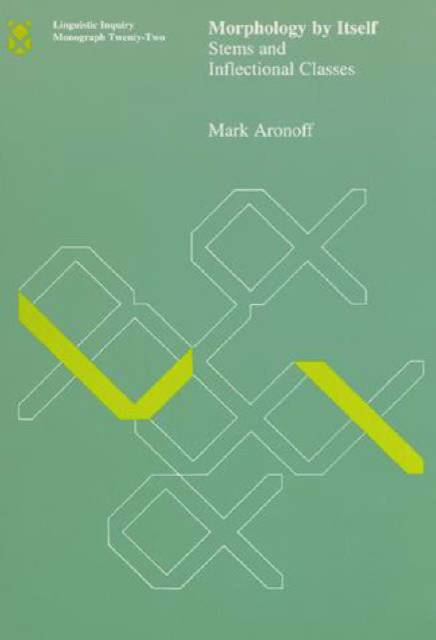
Bedankt voor het vertrouwen het afgelopen jaar! Om jou te bedanken bieden we GRATIS verzending (in België) aan op alles gedurende de hele maand januari.
- Afhalen na 1 uur in een winkel met voorraad
- In januari gratis thuislevering in België
- Ruim aanbod met 7 miljoen producten
Bedankt voor het vertrouwen het afgelopen jaar! Om jou te bedanken bieden we GRATIS verzending (in België) aan op alles gedurende de hele maand januari.
- Afhalen na 1 uur in een winkel met voorraad
- In januari gratis thuislevering in België
- Ruim aanbod met 7 miljoen producten
Zoeken
Omschrijving
Most recent research in generative morphology has avoided the treatment of purely morphological phenomena and has focused instead on interface questions, such as the relation between morphology and syntax or between morphology and phonology. In this monograph Mark Aronoff argues that linguists must consider morphology by itself, not merely as an appendage of syntax and phonology, and that linguistic theory must allow for a separate and autonomous morphological component. Following a general introductory chapter, Aronoff examines two narrow classes of morphological phenomena to make his case: stems and inflectional classes. Concentrating first on Latin verb morphology, he argues that morphological stems are neither syntactic nor phonological units. Next, using data from a number of languages, he underscores the traditional point that the inflectional class of a word is not reducible to its syntactic gender. He then explores in detail the phonologically motivated nominal inflectional class system of two languages of Papua New Guinea (Arapeshand Yimas) and the precise nature of the relation between this system and the corresponding gender system. Finally, drawing on a number of Semitic languages, Aronoff argues that the verb classes of these languages are purely inflectional although they are partly motivated by derivational and syntactic considerations.
Specificaties
Betrokkenen
- Auteur(s):
- Uitgeverij:
Inhoud
- Aantal bladzijden:
- 230
- Taal:
- Engels
- Reeks:
- Reeksnummer:
- nr. 22
Eigenschappen
- Productcode (EAN):
- 9780262510721
- Verschijningsdatum:
- 2/12/1993
- Uitvoering:
- Paperback
- Formaat:
- Trade paperback (VS)
- Afmetingen:
- 150 mm x 228 mm
- Gewicht:
- 312 g

Alleen bij Standaard Boekhandel
+ 75 punten op je klantenkaart van Standaard Boekhandel
Beoordelingen
We publiceren alleen reviews die voldoen aan de voorwaarden voor reviews. Bekijk onze voorwaarden voor reviews.









